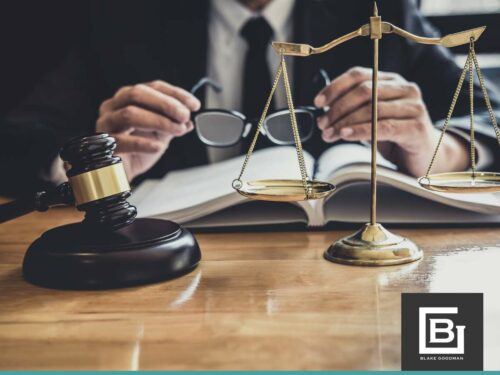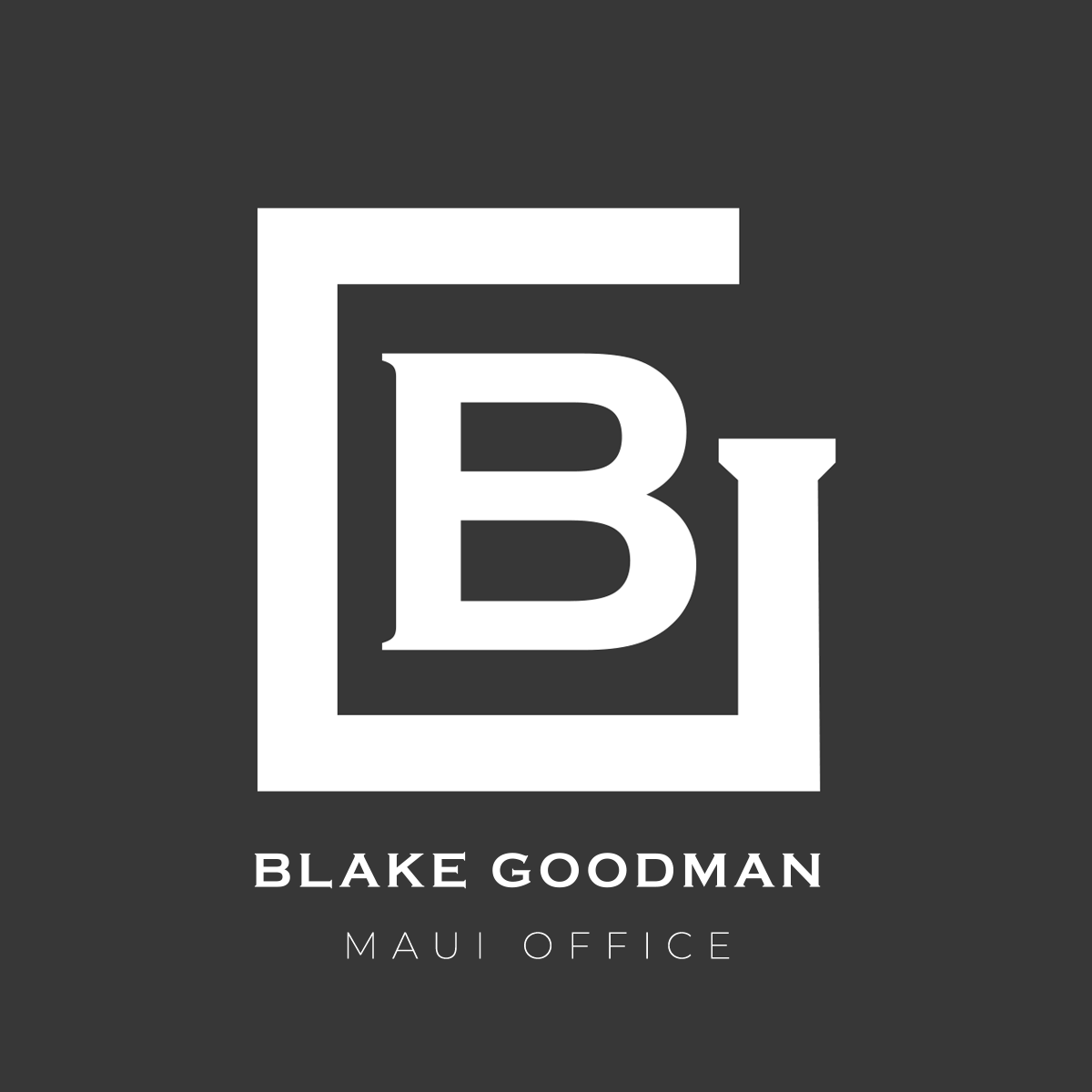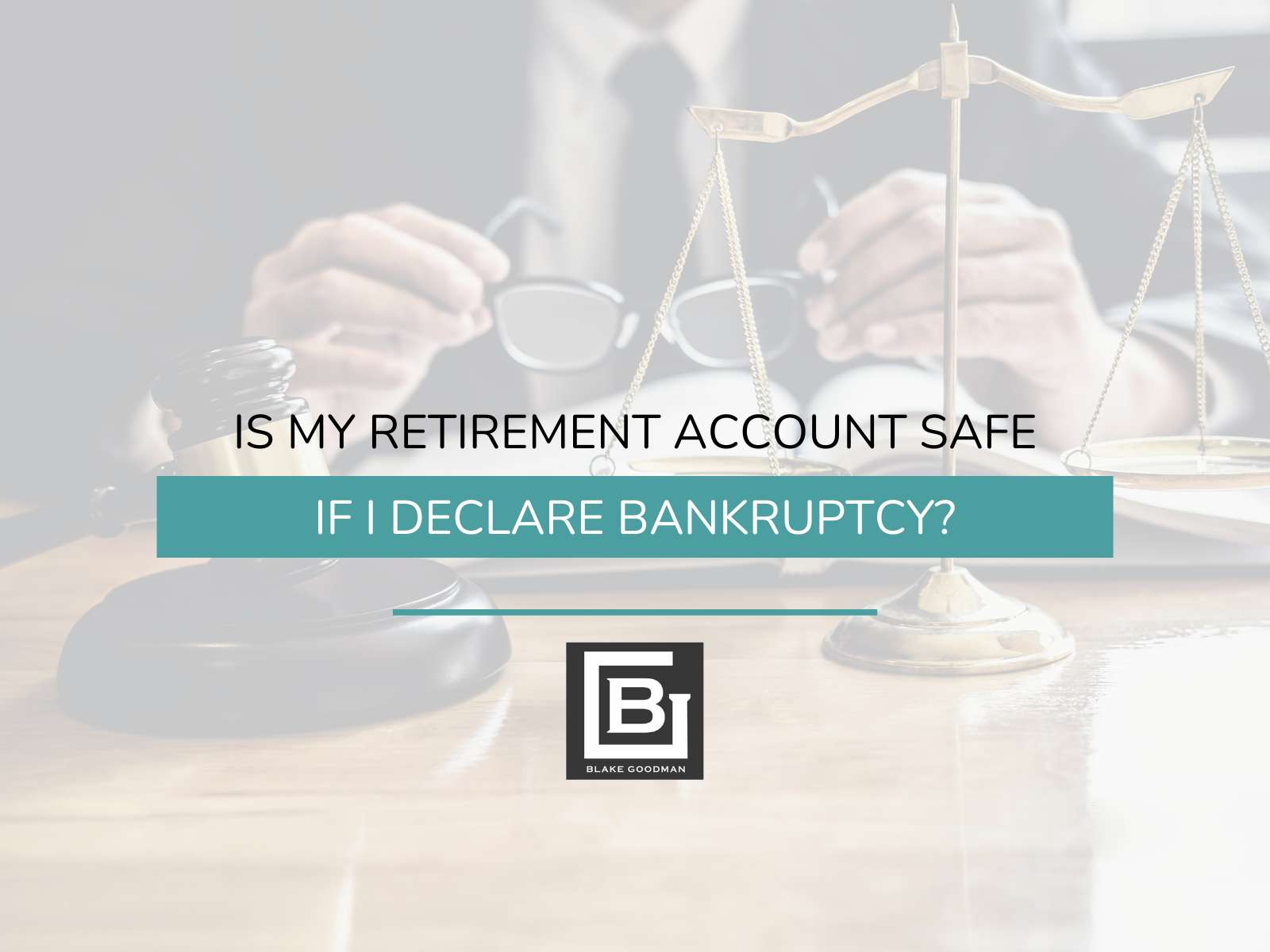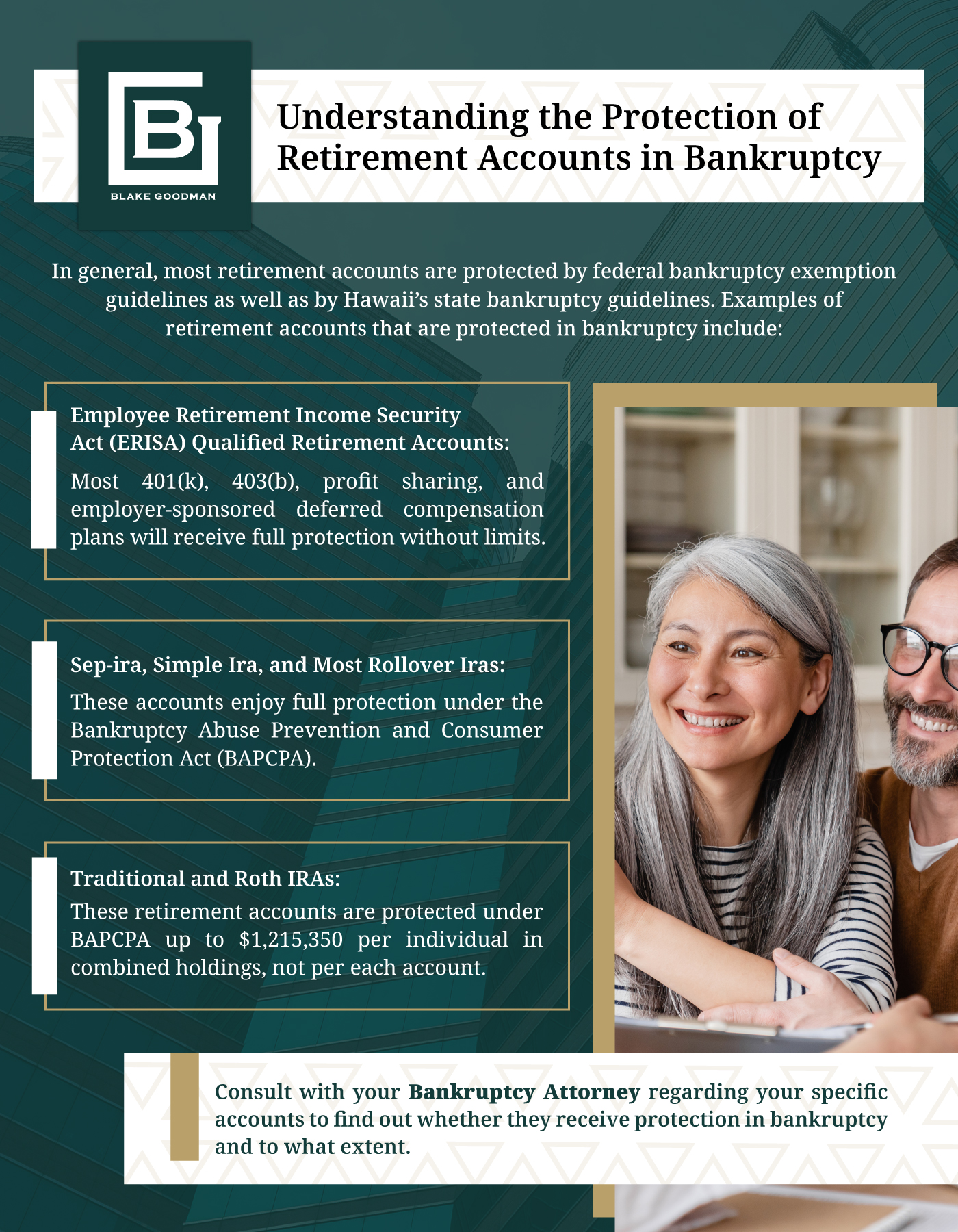Safeguarding Retirement Accounts in Hawaii Bankruptcy

Chapter 7 vs. Chapter 13 Bankruptcy: Impacts on Retirement Funds
If you file a Chapter 7 bankruptcy, your nonexempt assets will be used to pay off your creditors and any remaining debts will be discharged. In these cases, your retirement accounts are generally protected, but some limitations will apply. This means that your retirement accounts are safe from seizure and will not be used to pay off your debts. However, there are some limits on some accounts and you may face consequences if you withdraw your retirement money before you file for bankruptcy. Additionally, you cannot use your retirement accounts to “hide” or protect assets before you file.
If you file a Chapter 13 bankruptcy, none of your assets are used to pay off your debts and everything is protected. Instead, you’ll work with your attorney and the bankruptcy court to develop a 3-5 year payment plan for your debts based on your disposable income.
Understanding the Protection of Retirement Accounts in Bankruptcy
In general, most retirement accounts are protected by federal bankruptcy exemption guidelines as well as by Hawaii’s state bankruptcy guidelines. When individuals file for Chapter 7 bankruptcy, they can choose to abide by either the federal or state guidelines, but they must choose one system and cannot mix and match exemptions from both. Many bankruptcy filers will discover that one system works much better at providing protection for their assets.
Examples of retirement accounts that are protected in bankruptcy include:
- Employee Retirement Income Security Act (ERISA) Qualified Retirement Accounts: Most 401(k), 403(b), profit sharing, and employer-sponsored deferred compensation plans will receive full protection without limits. Your plan administrator can tell you whether your retirement account is ERISA qualified.
- SEP-IRA, Simple IRA, and most rollover IRAs: These accounts enjoy full protection under the Bankruptcy Abuse Prevention and Consumer Protection Act (BAPCPA).
- Traditional and Roth IRAs: These retirement accounts are protected under BAPCPA up to $1,215,350 per individual in combined holdings, not per each account. Any surplus may be used to pay your creditors.
Consult with your bankruptcy attorney regarding your specific accounts to find out whether they receive protection in bankruptcy and to what extent.
Which Retirement Accounts Are Shielded from Bankruptcy?
Unless you have a separate cash exemption, money that is saved in a regular savings account, investment account, brokerage account, stock option plan, and similar accounts are usually not protected in a Chapter 7 bankruptcy and can be used by your bankruptcy trustee to pay your creditors, even if you consider those funds to be part of your retirement savings.
What About Filing for Bankruptcy if I’m Already Retired?
If you’re retired and collecting retirement benefits, the income that you receive from your accounts may affect how your bankruptcy is handled.
In order to file a Chapter 7 bankruptcy, you must be within certain income limits or pass a means test based on your income and expenses. Your monthly retirement benefits from your pension and/or retirement account(s) will be considered as income, and any retirement benefits that are considered beyond what’s necessary for basic expenses may be used to pay your debts.
Retirees may prefer to file a Chapter 13 bankruptcy if possible. Your retirement benefits will be used to calculate your income and disposable income. The benefits of filing for Chapter 13 bankruptcy is that all of your assets are protected and you will be able to pay back at least some of what you owe.
Social Security & Bankruptcy: What You Need to Know
As long as you keep social security benefits separate from your other finances, your benefits are considered exempt. Your bankruptcy attorney may advise using a separate bank account for your Social Security benefits.
Smart Strategies to Protect Your Retirement Savings in Bankruptcy

Before you take money from a retirement account to pay down debt, be sure to consult with your bankruptcy attorney first. This may seem like a good idea, but may not be the best way to manage your debt or maximize the value of your retirement accounts. Additionally, never move money into a retirement account before you file for bankruptcy. The bankruptcy court will thoroughly examine your finances as part of your petition. Any funds that seem to have been “hidden” or otherwise moved may be seized, or your petition may be denied altogether.
Get Expert Insight on Safeguarding Your Retirement in Bankruptcy
If you’re wondering whether filing for bankruptcy is right for you but concerned about how you will protect your retirement benefits, call Blake Goodman, P.C. to schedule your obligation-free, confidential consultation. We have been assisting clients in financial law since 1989 and will use our experience, expertise, and knowledge to guide you through debt consolidation, bankruptcy, or another alternative that may be better for you. Contact us today to begin the road to financial freedom!

Email: blake@debtfreehawaii.com
Website: https://www.debtfreehawaii.com/
HONOLULU OFFICE
900 Fort Street MallSuite 910
Honolulu, HI 96813
Phone: (808) 517-5446
AIEA OFFICE
98-1238 Ka'ahumanu StSuite 201
Pearl City, HI 96782
Phone: (808) 515-3441
KANEOHE OFFICE
46-005 Kawa StSuite 206
Kaneohe, HI 96744
Phone: (808) 515-3304
MAUI OFFICE
220 Imi Kala St. #203BWailuku, HI 96793
Phone: (808) 515-2037

Blake Goodman received his law degree from George Washington University in Washington, D.C. in 1989 and has been exclusively practicing bankruptcy-related law in Texas, New Mexico, and Hawaii ever since. In the past, Attorney Goodman also worked as a Certified Public Accountant, receiving his license form the State of Maryland in 1988.


